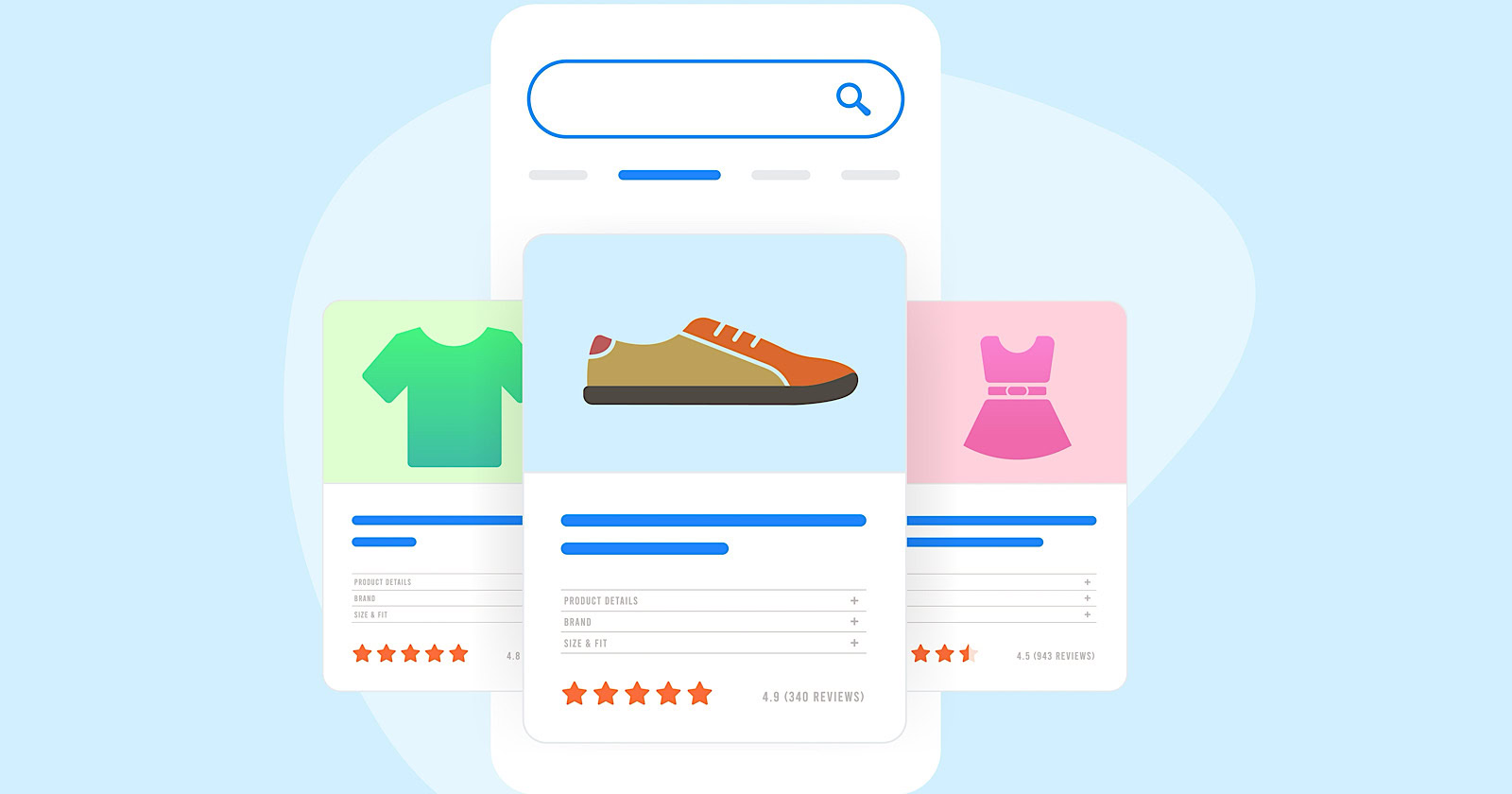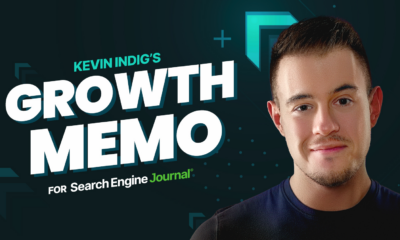SEO
Best SEO Courses Online – Free & Paid Options
Earning a degree is a good thing for some professions. After all, you wouldn’t want a doctor who learned his trade via YouTube videos taking out your appendix, would you? Of course not.
But for other professions, you can learn just as much, if not more, than a college curriculum’s worth online for a fraction of the cost. Search engine optimization is one of those things.
That’s not to say there’s no value in an SEO specialist earning a degree – any education is a good thing, particularly if it’s in a related field like computer science, marketing, or communications.
But as you probably know, the SEO field is in a constant state of flux. And it’s more than competitors tweaking their strategies to jump ahead of you; it’s also regular and sometimes major changes to Google’s search algorithm.
If you’re just getting started in SEO, you’re a mid-level professional looking to add tools to your toolbox, or even a seasoned veteran seeking the latest tricks, we’ve got just the thing.
Below, we’ve compiled a list of the best online SEO courses available, so you can find exactly what you’re looking for.
Free SEO Courses
SEO Certification Course (HubSpot)
A marketing and sales software developer, HubSpot always thinks of marketers’ needs. And that includes its SEO Certification Course. It covers the basics of SEO, including evaluating your current site, building backlinks, and performing keyword research.
Length: Under three hours for six total lessons
SEO Training Course: Learn How To Get Organic Traffic From Search (Ahrefs)
Another SEO software tools provider, Ahrefs, offers a free course for SEO beginners. This program starts from scratch, explaining why SEO is important and guiding participants through the basics of keyword research, page optimization, and beginning technical SEO.
Length: 14 lessons over two hours
Free SEO Training: SEO For Beginners (Yoast)
The makers of the popular SEO plugin for WordPress want to help you learn more about SEO with a free online course. Yoast’s program is designed to quickly equip you with the knowledge you need to impact your site’s ranking as quickly as possible positively.
Length: Two hours
SEO Training For Beginners (Shopify)
When it comes to ecommerce, Shopify is the big dog on the block. To help online retailers maximize their impact and revenue, Shopify offers free SEO training for beginners. With its focus on digital shopping, this course is ideal for entrepreneurs.
Length: 16 lessons in just over one hour
On-Page And Technical SEO Course (Semrush)
The makers of keyword research and analytics tool Semrush offer a course for intermediate SEO professionals covering on-page and technical SEO. Upon completion of this, you can test for certification.
Length: Seven lessons in one hour
Intro To Search Engine Optimization (WordPress)
Popular blogging platform WordPress offers an entry-level course to introduce you to the fundamentals of SEO. Content is available on-demand, and you will receive a certificate of completion.
SEO Basics (Conductor)
Conductor offers several free SEO courses, including SEO Basics, Paid & Organic Synergy, and Evangelizing SEO. All are intended to help you maximize your digital marketing strategy and increase search rankings.
Length: 1:30 for SEO basics
A Beginner’s Guide To Local SEO (BrightLocal)
Local SEO puts you in front of customers right when they’re looking for you – which means it’s really important. This course from BrightLocal Academy will equip you with the knowledge and skills to start showing up on those searches conducted in your neighborhood.
Length: Eight lessons + certification in roughly one hour
Google SEO Fundamentals (Coursera/University Of California, Davis)
This course, designed by UC Davis, will help you quickly get up to speed on the basics of search engine optimization. It includes information on developing a strategy, keyword research, and search behavior.
Length: 11 videos, eight hours to complete
Search Engine Optimization (SEO) Specialization (Coursera/University Of California, Davis)
More in-depth than this previous one, this program will teach you how to perform competitive analysis, develop influencer relationships, and create reports on your findings.
Length: Five courses
Paid SEO Courses
Free is always a great thing, but if you’re looking for something a little more serious and focused, it might be worth your time to invest in a paid course. Here are some of the best ones:
Search Engine Optimization (SEO) Training Course (Simplilearn)
Simplilearn is an online “boot camp” educator. Its Advanced SEO Course is intended to prepare you for a role as a full-stack SEO professional. This in-depth program focuses on everything from the basics of the search field to advanced skills like off-page optimization, developing a content marketing strategy, and managing analytics.
Length: 58 lessons ranging from under five minutes to roughly an hour and a half.
Price: Self-paced learning – $1,199, online boot camp – $1,499
SEO Essentials Certification (Moz)
SEO software provider Moz offers a wide variety of training options through its Moz Academy. Of particular interest is the SEO Essentials Certification. This course is intended to provide you with the knowledge you need to get started in SEO, including developing an understanding of how search engines operate.
Length: Six hours of instructor-guided content
Price: $595
Technical SEO Certification (Moz)
Looking for something more advanced? This on-demand course is designed to equip you with the skills you need to take your technical SEO expertise from beginner to intermediate. You’ll learn about crawlability, indexability, accessibility, and site performance.
Length: Three hours of instructor-led content
Price: $395
SEO Competitive Analysis Certification (Moz)
Yet another Moz Academy course intended for intermediate to advanced SEO professionals, this on-demand program will teach you how to identify and analyze your competitors’ SEO campaigns, conduct audits, and evaluate your rivals’ social media presence.
Length: Three hours of instructor-led content
Price: $395
SEO Certification (ClickMinded)
An online continuing education platform for marketing professionals, ClickMinded offers an SEO certification course designed with busy professionals in mind. It will teach you the basics of search engine optimization, and upon passing the final exam, you’ll be awarded certification. It also includes lifetime access to five mini-SEO courses.
Length: Three to six hours
Price: Single courses from $997
Advanced Search Engine Optimization (SEO) Certification Training (Market Motive/Simplilearn)
This in-depth SEO course goes far beyond the fundamentals, helping you take your skills to the next level. A bigger time investment than some courses on this list, it is intended to be a comprehensive course on all things SEO.
Length: 25+ hours
Price: Self-paced learning for $1,199, online boot camp for $1,499
SEO 101 (DistilledU)
Learn everything from basic skills to advanced concepts in this online university. SEO 101 focuses on how search engines work and the skills and principles you need to know to improve your ranking.
Length: Eight modules over 32+ hours
Price: $40/month paid monthly; $33/month paid annually
SEO Training (Bruce Clay)
Bruce Clay programmed the world’s first webpage analysis tool. Now, he’s sharing his expertise in search engine optimization via SEOTraining.com. This exhaustive course is learn-at-your-own-pace and features everything from beginning SEO training to advanced tactics.
Length: 15+ hours over 48 videos
Price: $1,495 for a one-year membership
SEO Basics (SERanking)
This structured online course is designed to walk you through every aspect of SEO and show you how to make it work for you. SERanking also offers a course on Content SEO to further expand your knowledge.
Length: 41 lessons over six hours
Price: Basic subscription starting at $39.20/month
The (Non-Techie) Marketer’s Guide To SEO (MarketingProfs)
This program is designed for people who don’t have degrees in computer science or related fields. It breaks down how search engines work and gives you specific steps to help you maximize your ranking without needing to learn a coding language.
Length: Seven lessons, 60-90 minutes each
Price: $595 annual subscription
Search Engine Optimization (SEO) And Marketing (University Of California, San Diego)
Learn the basics of SEO and how to structure your website in this online course from UC San Diego. You’ll gain practical experience performing the duties of an SEO specialist while learning to use various online tools.
Length: Three credit hours
Price: $695
Search Engine Optimization (University Of Phoenix)
Learn to perform competitive analysis, create a keyword strategy and develop a crawler-friendly site architecture in this online course. This program will provide you with a solid understanding of SEO tactics and best practices.
Length: Three credit hours, five weeks
Prices: $1,194
Search Engine Optimization (University Of Cape Town)
This online course will equip you with work-ready skills to allow you to take on an SEO role with confidence. In addition to a practical understanding of best practices, you’ll also receive an industry-recognized certificate from Africa’s top university.
Length: 10 weeks with 10 hours per week
Foundations Of Search Engine Optimization (University Of Toronto)
Learn to perform competitive research and develop SEO strategies in this micro-course. You’ll gain a thorough understanding of how Google works and learn best practices to help you climb the rankings.
Length: 15 hours
Price: $559 Canadian
Other Resources
The great thing about the internet (aside from the fun of optimizing websites for search engines) is the absolute wealth of information it brings you. Here are a few other resources you can use to learn more about search engine optimization:
LinkedIn Learning
LinkedIn is more than a professional networking site – it’s also a great place to learn.
At the time of writing, there were 521 SEO-related videos and courses available. And with such a large number to choose from, there’s sure to be something of value for every skill level.
PluralSight
Online tech learning platform PluralSight is a great way to learn new skills – including digital marketing and SEO.
A great place to earn tech certifications, you can even use it to learn to code if you want to add that to your growing set of web skills. A free trial is available, and then plans start at $299 per year.
Udemy
Another learning platform dedicated to helping you level up your skillset, Udemy has a number of SEO videos.
Each video lesson is sold separately, but this gives you the benefit of choosing exactly which aspect of SEO you want to learn more about. Courses start at $14.99 each.
Skillshare SEO Courses
Skillshare offers a wide range of original videos on a variety of creative and tech topics, including, you guessed it, SEO.
It’s a great place to brush up on the fundamentals or focus on a specific area for improvement. Prices start at $159 per year for teams.
A Great SEO Never Stops Learning
One of the best things about working in SEO is that no two days are ever alike. And as long as Google keeps tinkering away with its algorithm, trying to fine-tune search results, there will always be a need for a skilled professional to help websites climb the rankings on search results pages.
The course discussed runs the gamut from free courses for absolute beginners to detailed classes on one specific aspect of SEO.
Just remember, no matter how long you’ve been doing it or how good you are, your education is never done. Keep learning – it’s the only way to ensure your website gets the ranking it deserves.
More Resources:
Featured Image: GaudiLab/Shutterstock
SEO
Google Cautions On Blocking GoogleOther Bot

Google’s Gary Illyes answered a question about the non-search features that the GoogleOther crawler supports, then added a caution about the consequences of blocking GoogleOther.
What Is GoogleOther?
GoogleOther is a generic crawler created by Google for the various purposes that fall outside of those of bots that specialize for Search, Ads, Video, Images, News, Desktop and Mobile. It can be used by internal teams at Google for research and development in relation to various products.
The official description of GoogleOther is:
“GoogleOther is the generic crawler that may be used by various product teams for fetching publicly accessible content from sites. For example, it may be used for one-off crawls for internal research and development.”
Something that may be surprising is that there are actually three kinds of GoogleOther crawlers.
Three Kinds Of GoogleOther Crawlers
- GoogleOther
Generic crawler for public URLs - GoogleOther-Image
Optimized to crawl public image URLs - GoogleOther-Video
Optimized to crawl public video URLs
All three GoogleOther crawlers can be used for research and development purposes. That’s just one purpose that Google publicly acknowledges that all three versions of GoogleOther could be used for.
What Non-Search Features Does GoogleOther Support?
Google doesn’t say what specific non-search features GoogleOther supports, probably because it doesn’t really “support” a specific feature. It exists for research and development crawling which could be in support of a new product or an improvement in a current product, it’s a highly open and generic purpose.
This is the question asked that Gary narrated:
“What non-search features does GoogleOther crawling support?”
Gary Illyes answered:
“This is a very topical question, and I think it is a very good question. Besides what’s in the public I don’t have more to share.
GoogleOther is the generic crawler that may be used by various product teams for fetching publicly accessible content from sites. For example, it may be used for one-off crawls for internal research and development.
Historically Googlebot was used for this, but that kind of makes things murky and less transparent, so we launched GoogleOther so you have better controls over what your site is crawled for.
That said GoogleOther is not tied to a single product, so opting out of GoogleOther crawling might affect a wide range of things across the Google universe; alas, not Search, search is only Googlebot.”
It Might Affect A Wide Range Of Things
Gary is clear that blocking GoogleOther wouldn’t have an affect on Google Search because Googlebot is the crawler used for indexing content. So if blocking any of the three versions of GoogleOther is something a site owner wants to do, then it should be okay to do that without a negative effect on search rankings.
But Gary also cautioned about the outcome that blocking GoogleOther, saying that it would have an effect on other products and services across Google. He didn’t state which other products it could affect nor did he elaborate on the pros or cons of blocking GoogleOther.
Pros And Cons Of Blocking GoogleOther
Whether or not to block GoogleOther doesn’t necessarily have a straightforward answer. There are several considerations to whether doing that makes sense.
Pros
Inclusion in research for a future Google product that’s related to search (maps, shopping, images, a new feature in search) could be useful. It might be helpful to have a site included in that kind of research because it might be used for testing something good for a site and be one of the few sites chosen to test a feature that could increase earnings for a site.
Another consideration is that blocking GoogleOther to save on server resources is not necessarily a valid reason because GoogleOther doesn’t seem to crawl so often that it makes a noticeable impact.
If blocking Google from using site content for AI is a concern then blocking GoogleOther will have no impact on that at all. GoogleOther has nothing to do with crawling for Google Gemini apps or Vertex AI, including any future products that will be used for training associated language models. The bot for that specific use case is Google-Extended.
Cons
On the other hand it might not be helpful to allow GoogleOther if it’s being used to test something related to fighting spam and there’s something the site has to hide.
It’s possible that a site owner might not want to participate if GoogleOther comes crawling for market research or for training machine learning models (for internal purposes) that are unrelated to public-facing products like Gemini and Vertex.
Allowing GoogleOther to crawl a site for unknown purposes is like giving Google a blank check to use your site data in any way they see fit outside of training public-facing LLMs or purposes related to named bots like GoogleBot.
Takeaway
Should you block GoogleOther? It’s a coin toss. There are possible potential benefits but in general there isn’t enough information to make an informed decision.
Listen to the Google SEO Office Hours podcast at the 1:30 minute mark:
Featured Image by Shutterstock/Cast Of Thousands
SEO
AI Search Boosts User Satisfaction

A new study finds that despite concerns about AI in online services, users are more satisfied with search engines and social media platforms than before.
The American Customer Satisfaction Index (ACSI) conducted its annual survey of search and social media users, finding that satisfaction has either held steady or improved.
This comes at a time when major tech companies are heavily investing in AI to enhance their services.
Search Engine Satisfaction Holds Strong
Google, Bing, and other search engines have rapidly integrated AI features into their platforms over the past year. While critics have raised concerns about potential negative impacts, the ACSI study suggests users are responding positively.
Google maintains its position as the most satisfying search engine with an ACSI score of 81, up 1% from last year. Users particularly appreciate its AI-powered features.
Interestingly, Bing and Yahoo! have seen notable improvements in user satisfaction, notching 3% gains to reach scores of 77 and 76, respectively. These are their highest ACSI scores in over a decade, likely due to their AI enhancements launched in 2023.
The study hints at the potential of new AI-enabled search functionality to drive further improvements in the customer experience. Bing has seen its market share improve by small but notable margins, rising from 6.35% in the first quarter of 2023 to 7.87% in Q1 2024.
Customer Experience Improvements
The ACSI study shows improvements across nearly all benchmarks of the customer experience for search engines. Notable areas of improvement include:
- Ease of navigation
- Ease of using the site on different devices
- Loading speed performance and reliability
- Variety of services and information
- Freshness of content
These improvements suggest that AI enhancements positively impact various aspects of the search experience.
Social Media Sees Modest Gains
For the third year in a row, user satisfaction with social media platforms is on the rise, increasing 1% to an ACSI score of 74.
TikTok has emerged as the new industry leader among major sites, edging past YouTube with a score of 78. This underscores the platform’s effective use of AI-driven content recommendations.
Meta’s Facebook and Instagram have also seen significant improvements in user satisfaction, showing 3-point gains. While Facebook remains near the bottom of the industry at 69, Instagram’s score of 76 puts it within striking distance of the leaders.
Challenges Remain
Despite improvements, the study highlights ongoing privacy and advertising challenges for search engines and social media platforms. Privacy ratings for search engines remain relatively low but steady at 79, while social media platforms score even lower at 73.
Advertising experiences emerge as a key differentiator between higher- and lower-satisfaction brands, particularly in social media. New ACSI benchmarks reveal user concerns about advertising content’s trustworthiness and personal relevance.
Why This Matters For SEO Professionals
This study provides an independent perspective on how users are responding to the AI push in online services. For SEO professionals, these findings suggest that:
- AI-enhanced search features resonate with users, potentially changing search behavior and expectations.
- The improving satisfaction with alternative search engines like Bing may lead to a more diverse search landscape.
- The continued importance of factors like content freshness and site performance in user satisfaction aligns with long-standing SEO best practices.
As AI becomes more integrated into our online experiences, SEO strategies may need to adapt to changing user preferences.
Featured Image: kate3155/Shutterstock
SEO
Google To Upgrade All Retailers To New Merchant Center By September

Google has announced plans to transition all retailers to its updated Merchant Center platform by September.
This move will affect e-commerce businesses globally and comes ahead of the holiday shopping season.
The Merchant Center is a tool for online retailers to manage how their products appear across Google’s shopping services.
Key Changes & Features
The new Merchant Center includes several significant updates.
Product Studio
An AI-powered tool for content creation. Google reports that 80% of current users view it as improving efficiency.
This feature allows retailers to generate tailored product assets, animate still images, and modify existing product images to match brand aesthetics.
It also simplifies tasks like background removal and image resolution enhancement.
Centralized Analytics
A new tab consolidating various business insights, including pricing data and competitive analysis tools.
Retailers can access pricing recommendations, competitive visibility reports, and retail-specific search trends, enabling them to make data-driven decisions and capitalize on popular product categories.
Redesigned Navigation
Google claims the new interface is more intuitive and cites increased setup success rates for new merchants.
The platform now offers simplified website verification processes and can pre-populate product information during setup.
Initial User Response
According to Google, early adopters have shown increased engagement with the platform.
The company reports a 25% increase in omnichannel merchants adding product offers in the new system. However, these figures have yet to be independently verified.
Jeff Harrell, Google’s Senior Director of Merchant Shopping, states in an announcement:
“We’ve seen a significant increase in retention and engagement among existing online merchants who have moved to the new Merchant Center.”
Potential Challenges and Support
While Google emphasizes the upgrade’s benefits, some retailers, particularly those comfortable with the current version, may face challenges adapting to the new system.
The upgrade’s mandatory nature could raise concerns among users who prefer the existing interface or have integrated workflows based on the current system.
To address these concerns, Google has stated that it will provide resources and support to help with the transition. This includes tutorial videos, detailed documentation, and access to customer support teams for troubleshooting.
Industry Context
This update comes as e-commerce platforms evolve, with major players like Amazon and Shopify enhancing their seller tools. Google’s move is part of broader efforts to maintain competitiveness in the e-commerce services sector.
The upgrade could impact consumers by improving product listings and providing more accurate information across Google’s shopping services.
For the e-commerce industry as a whole, it signals a continued push towards AI-driven tools and data-centric decision-making.
Transition Timeline
Google states that retailers will be automatically upgraded by September if they still need to transition.
The company advises users to familiarize themselves with the new features before the busy holiday shopping period.
Featured Image: BestForBest/Shutterstock
-

 SEARCHENGINES6 days ago
SEARCHENGINES6 days agoBillions Of Google goo.gl URLs To 404 In The Future
-
SEARCHENGINES5 days ago
Daily Search Forum Recap: July 22, 2024
-

 SEARCHENGINES7 days ago
SEARCHENGINES7 days agoGoogle Core Update Coming, Ranking Volatility, Bye Search Notes, AI Overviews, Ads & More
-

 SEO6 days ago
SEO6 days ago11 Copyscape Alternatives To Check Plagiarism
-

 SEO6 days ago
SEO6 days agoGoogle Warns Of Last Chance To Export Notes Search Data
-
SEARCHENGINES4 days ago
Daily Search Forum Recap: July 23, 2024
-

 AFFILIATE MARKETING6 days ago
AFFILIATE MARKETING6 days agoThe Top 5 AI Tools That Can Revolutionize Your Workflow and Boost Productivity
-

 SEO4 days ago
SEO4 days agoSystem Builders – How AI Changes The Work Of SEO




You must be logged in to post a comment Login